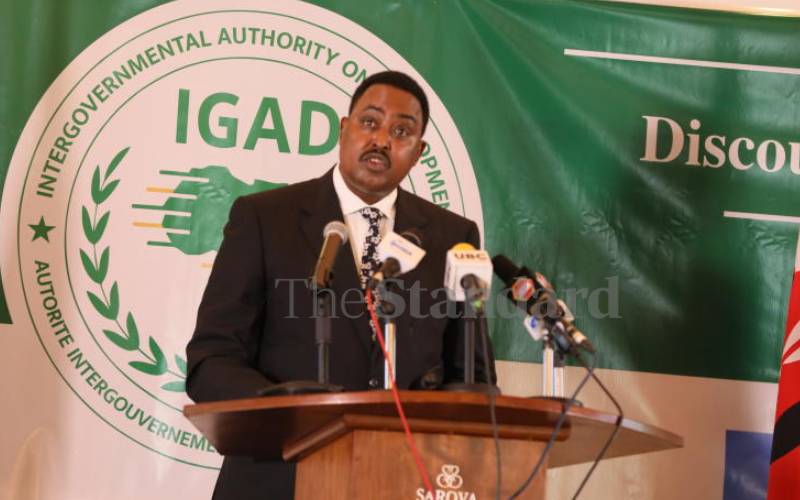×
The Standard e-Paper
Join Thousands Daily

Dr Worknch Gebeyehu addresses African leaders during the State of African region at Whitesands Beach Hotel in Mombasa. [Omondi Onyango, Standard]
An intergovernmental agency has warned that conflicts in the region have weakened the response to al-Shabaab and other terror groups.